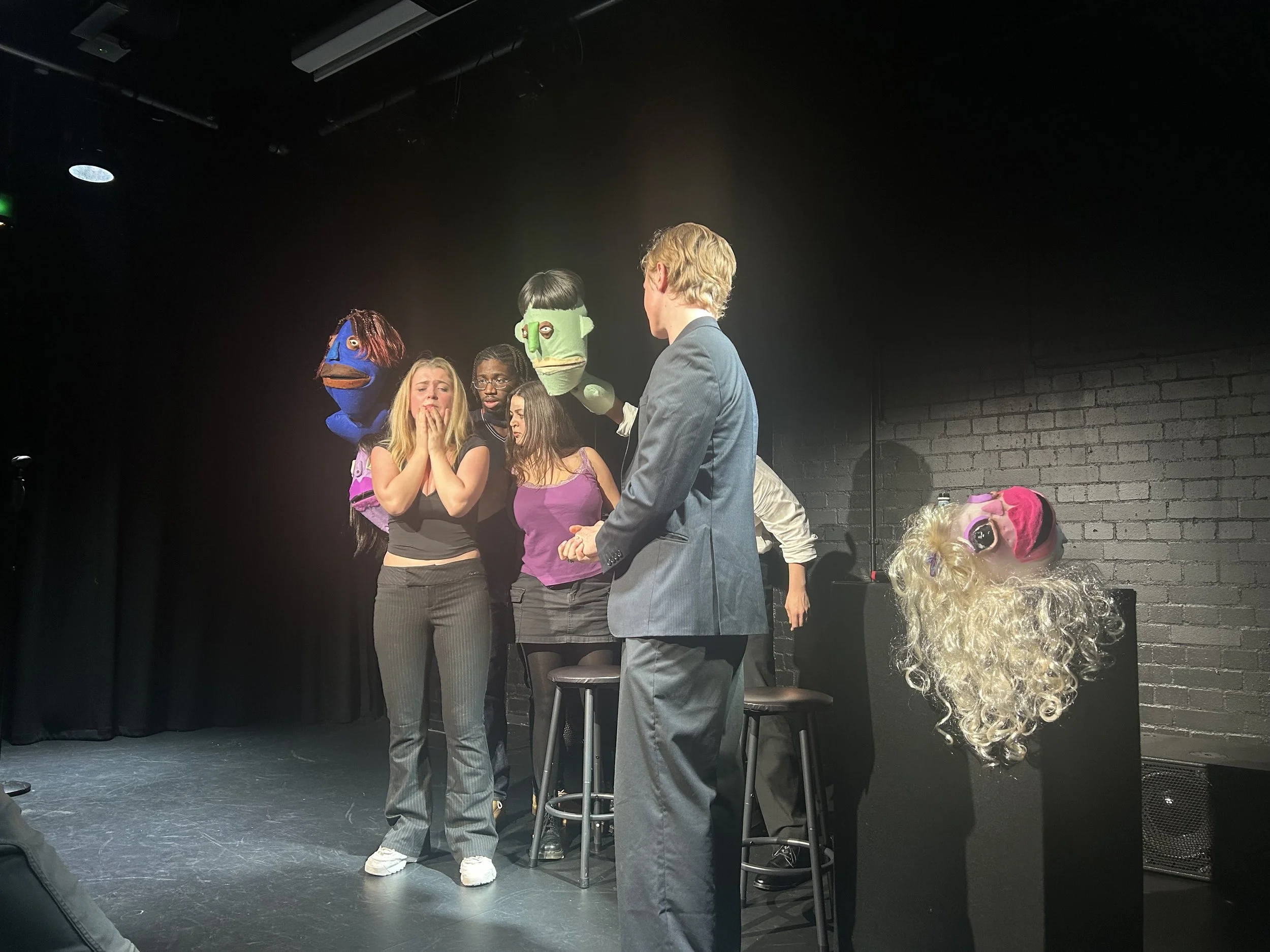Puss Puss Review: What Doesn’t Kill Jenna Scott Makes Her Funnier
Do you remember Big House? The top-rated children’s show with three little girls and a hideous puppet? The one that got cancelled with no real explanation? No? Well, sit tight, because former Big House lead actress Jenna Scott is making her comeback as a stand-up comedian tonight.
Opening the first scene by explaining the perks of “doing coke at age thirteen”, Jenna (played by Pi’s very own Mia Ramage) cracks jaw-droppingly crude, sardonic jokes which quickly earn booms of laughter from the audience. As Jenna, Ramage quickly wins over the audience with her dark sense of humour while she tells us about Tube Guy (Tito Adetunji), who can only be described as the average creepy dude you meet on the tube.
Jenna then introduces us to her friends. Johnnie Davis plays her flatmate, and delivers a brilliant performance of a shy, stuttering Louis who clearly struggles with maternal attachment. Next comes Izzy, Jenna’s friend from university: Dora Fidler perfectly captures Izzy’s dramatic flair as she rushes on stage, rambling about the latest gossip. It’s Izzy who finally addresses the elephant in the room – why was Big House cancelled? Thus, the plot thickens, and we first catch a glimpse of Jenna’s vulnerability.
We meet Martin Acton next, the man who gives Puss Puss, a hideous puppet, its voice. Thespian Felix May’s voice acting leaves a lasting impression on all of us, seamlessly alternating between Puss Puss’s child-like shrill and Acton’s low baritone. It seems like Jenna can’t quite get rid of the puppet’s voice: it plays in the back of her mind even when she’s with David (played effortlessly by Davy Tennison), her middle-aged philosophy professor who she’s sleeping with.
The play spirals into an unexpectedly dark territory from this point onwards.
Director Eve Dyson intricately weaves Jenna’s story together with pre-recorded footage and live acting, allowing the audience to piece together the mystery of Jenna’s haunted past, as secrets reveal themselves. The play is cleverly disguised as a stand-up routine with Jenna breaking the fourth wall constantly – in fact, she spends most of the time talking to the audience like a stand-up comedian would in real life. The sense of realism peaks in the final scene, in which Jenna comes clean about her traumatic past.
Mascara running down her cheeks, Jenna sobs as she reflects on her intimate relationships and reveals that she was groomed by Martin. Ramage delivers a powerful monologue centred on fear and guilt, forcing the audience to confront the aftermath of sexual and emotional exploitation that survivors spend months, if not years, coming to terms with.
Here’s what the audience had to say:
“It was super impactful, really thought-provoking. I thought the acting was phenomenal. All of the cast really played their parts super convincingly and brought something unique to their characters. Very well directed and the writing was very powerful. It surprised me a lot in good ways because I wasn’t expecting to go into that and be as challenged, and I was challenged in a very healthy way. I really enjoyed that as well.”
“Really harrowing, very topical, very reminiscent of life. I got a lot of Bojack Horseman vibes from it. Over the years we hear so much about child actors and the culture that was on those kinds of sets, and it's really interesting to see it come to light. I think it was done in a really powerful way with the puppets as well, and amazing performances by the cast.”
Presented by UCL Drama Society, Puss Puss ran for 70 minutes in Bloomsbury Studio from November 10th to 12th.

